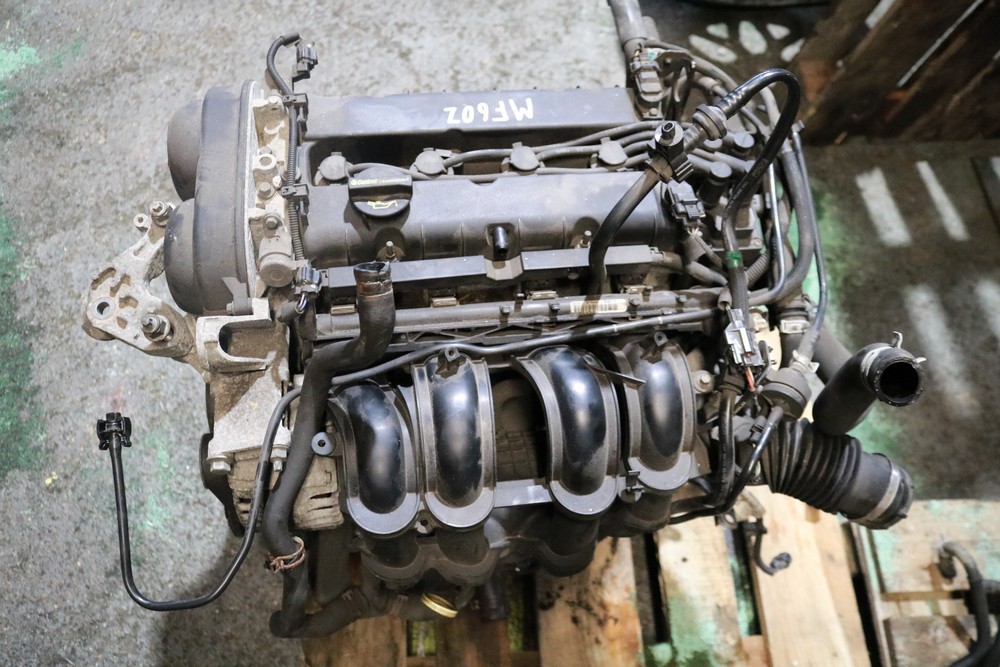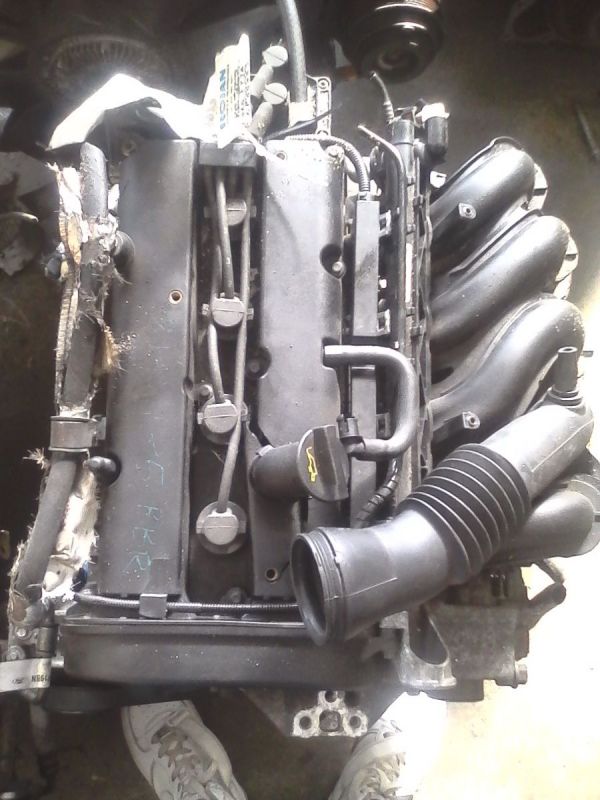Save Money on Repairs with Regular Ford Fiesta Engine Inspections
Save Money on Repairs with Regular Ford Fiesta Engine Inspections
Blog Article
The Future of Engines: Technologies Driving Lasting Power Solutions
As the automobile market browses the imperative transition towards sustainability, the future of engines is significantly specified by groundbreaking innovations. Electric engine improvements, along with appealing advancements in hydrogen fuel cells and biofuels, are reshaping the landscape of power remedies.
Electric Engine Advancement
The evolution of electrical engine advancements represents a crucial shift in the aerospace and automobile industries, driven by the urgent need for lasting choices to fossil gas. This transition is defined by substantial developments in battery technology, power electronic devices, and electric motor style, which jointly enhance the performance and efficiency of electrical engines.
Recent technologies have actually resulted in the development of lighter, extra energy-dense batteries, such as lithium-silicon and solid-state batteries, which guarantee longer arrays and shorter charging times. Furthermore, enhancements in electrical motor effectiveness, such as using permanent magnets and advanced cooling systems, allow electrical engines to run successfully under varying problems. These enhancements not just boost car performance yet likewise add to a decrease in total energy intake.
Moreover, the combination of advanced software algorithms has actually enhanced energy monitoring in electric automobiles, allowing for regenerative stopping and anticipating billing techniques. As suppliers increasingly welcome electrical propulsion, the aerospace and automotive industries are seeing a paradigm shift towards greener innovations. This development not only meets regulative needs yet also straightens with consumer choices for eco-friendly transport remedies, strengthening electrical engines as a keystone of future lasting mobility.
Advancements in Biofuels
As the automobile and aerospace markets significantly prioritize sustainable power resources, innovations in biofuels arise as a complementary service to electric engines. Biofuels, stemmed from natural products such as plants, waste, and algae, provide a cutting-edge method for minimizing greenhouse gas discharges and reliance on fossil gas.
Current research has actually concentrated on enhancing the effectiveness and sustainability of biofuel production. Second-generation biofuels make use of non-food feedstocks, minimizing competitors with food supply and minimizing environmental impact. Innovations in synthetic biology have actually enabled the design of microorganisms to generate biofuels more successfully, leading to greater yields and lower manufacturing costs.
Furthermore, the advancement of drop-in biofuels permits for seamless combination right into existing infrastructure, making it possible for a smoother transition for industries commonly based on nonrenewable fuel sources. ford fiesta engine. These gas can be made use of in current engines without modifications, facilitating their fostering across various fields
Investments in biofuel modern technology, in addition to helpful plans, are necessary to drive development and scalability. As the global neighborhood seeks to battle climate adjustment, biofuels provide a pragmatic, instant solution that aligns with the overarching objective of sustainability in transportation and aviation.
Hydrogen Fuel Cell Modern Technology
An expanding number of firms and scientists are checking out hydrogen gas cell technology as a viable alternative to standard source of power in transportation and energy systems. This technology transforms chemical energy from hydrogen right into electrical energy with an electrochemical response, with a knockout post water as the only result, making it an eco-friendly choice.
The core of hydrogen gas cells is the gas cell stack, where hydrogen particles are split right into protons and electrons. The circulation of electrons produces electricity, while protons relocate via a membrane to incorporate with oxygen from the air, developing water. This procedure results in high effectiveness and reduced discharges, placing hydrogen fuel cells as a critical gamer in the shift to lasting power.
Significant innovations have been made in enhancing the sturdiness and performance of gas cells, alongside minimizing prices through ingenious production methods. Furthermore, the advancement of hydrogen manufacturing techniques, such as electrolysis powered by renewable resource resources, boosts the sustainability of the overall system. As facilities for hydrogen refueling expands and manufacturing approaches come to be a lot more efficient, hydrogen fuel cell technology holds excellent assurance for decarbonizing different fields, consisting of heavy-duty transport and stationary power generation.
Hybrid Solutions and Their Influence
Hybrid systems represent a considerable development in sustainable engine technology, merging conventional internal burning engines with electric propulsion to optimize energy efficiency and decrease emissions (ford fiesta engine). This twin strategy enables vehicles to utilize both source of power, making it possible for higher versatility in power intake and minimizing reliance on nonrenewable fuel sources

Along with ecological advantages, hybrid systems offer customers a practical shift towards totally electrical cars. They alleviate range anxiety by incorporating the comfort of gas with the advantages of electric propulsion, making them an attractive alternative for a broader audience. As manufacturers purchase hybrid technology, the growth of even more advanced battery systems and light-weight materials proceeds to improve efficiency. Generally, hybrid systems original site stand for a pivotal step in the direction of achieving lasting transportation and addressing the urgent demand for eco-friendly power remedies.
The Duty of AI in Engine Layout
Leveraging sophisticated formulas and artificial intelligence strategies, the automotive sector is increasingly integrating man-made knowledge (AI) into engine style procedures. AI boosts the effectiveness and efficiency of layout by analyzing huge datasets to determine optimum arrangements and performance parameters. This capability enables engineers to imitate different operating problems and predict engine habits under several situations, significantly decreasing the moment and price connected with traditional prototyping methods.
Additionally, AI assists in the growth of innovative products and burning procedures customized for sustainability. By maximizing fuel effectiveness and reducing discharges, AI-driven designs align with global initiatives aimed at reducing the carbon impact of automotive engines. Artificial intelligence algorithms can also predict maintenance demands, causing boosted dependability and durability of engine components.
Furthermore, AI contributes in the integration of electrification innovations, such as hybrid systems, where it can maximize battery monitoring and power healing processes. As the sector relocates towards more lasting power options, the function of AI in engine design comes to be progressively vital, driving innovation and boosting the performance of future engines. Ultimately, the cooperation between AI and engine design proclaims a brand-new era of smarter, cleaner, and extra effective automotive technologies.

Verdict
In final thought, the future of engines is being shaped by a convergence of ingenious technologies that prioritize sustainability. Electric engine advancements, biofuel advancements, hydrogen fuel cells, and hybrid systems collectively contribute to a substantial decrease in discharges and ecological effect.
Electric engine developments, together with promising developments in hydrogen gas cells and biofuels, are reshaping the landscape of power services. Additionally, improvements in electrical motor effectiveness, such as the use of irreversible magnets and progressed cooling systems, enable electrical engines to run efficiently under varying problems. By optimizing fuel efficiency and lessening emissions, AI-driven styles line up with global campaigns aimed at decreasing the carbon impact of vehicle engines. As the sector moves towards even more sustainable power options, the role of AI in engine visit this site right here layout ends up being increasingly crucial, driving technology and improving the performance of future engines. Electric engine innovations, biofuel advancements, hydrogen gas cells, and hybrid systems jointly contribute to a substantial reduction in discharges and environmental effect.
Report this page